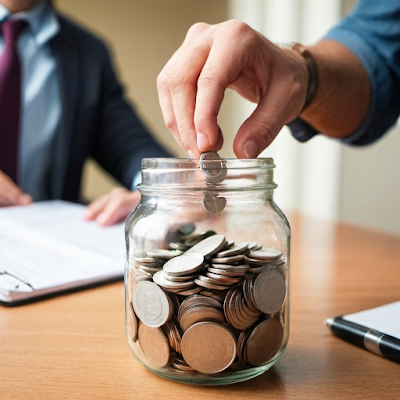Building an Emergency Fund: Tips for Saving Successfully
Building an Emergency Fund: Tips for Saving Successfully
Having an emergency fund is crucial for financial stability and peace of mind. Unexpected expenses can arise at any moment, such as medical emergencies, car repairs, or sudden job loss. By building an emergency fund, you can be prepared for these unforeseen circumstances without having to rely on credit cards or loans.
Why You Need an Emergency Fund
Life is full of uncertainties, and having an emergency fund can provide you with a sense of security knowing that you have a financial cushion to fall back on. Without an emergency fund, you may find yourself in a difficult situation, struggling to pay for unexpected expenses.
Having an emergency fund can also help you avoid going into debt. When faced with a financial crisis, having savings set aside can prevent you from relying on high-interest credit cards or payday loans.
 |
| Building an Emergency Fund: Tips for Saving Successfully |
Tips for Building an Emergency Fund
1. Set a Realistic Goal
Start by determining how much you need to save for your emergency fund. Most financial experts recommend saving three to six months' worth of living expenses. Consider your monthly bills, groceries, rent or mortgage, insurance, and other essential expenses when setting your goal.
2. Create a Budget
To reach your savings goal, you'll need to create a budget and track your expenses. Cut back on non-essential spending and allocate a portion of your income to your emergency fund each month. Consider using budgeting apps to help you stay on track.
3. Automate Your Savings
Set up automatic transfers from your checking account to your savings account each month. By automating your savings, you can ensure that money is consistently being deposited into your emergency fund without having to think about it.
4. Increase Your Income
Consider ways to increase your income to boost your savings efforts. You could take on a side hustle, freelance work, or sell items you no longer need. Any extra money you earn can go directly into your emergency fund.
5. Avoid Temptation
Resist the urge to dip into your emergency fund for non-emergencies. Keep your savings separate from your regular checking account to reduce the temptation to spend it on non-essential items.
6. Keep Your Fund Easily Accessible
While it's important to keep your emergency fund separate from your everyday spending, make sure it's easily accessible when you need it. Consider keeping your savings in a high-yield savings account or money market account for easy access.
Conclusion
Building an emergency fund is a smart financial move that can provide you with peace of mind and financial security. By following these tips and staying disciplined in your savings efforts, you can successfully build an emergency fund to protect yourself from life's uncertainties.
Remember, it's never too late to start saving for a rainy day. Begin building your emergency fund today and take control of your financial future.